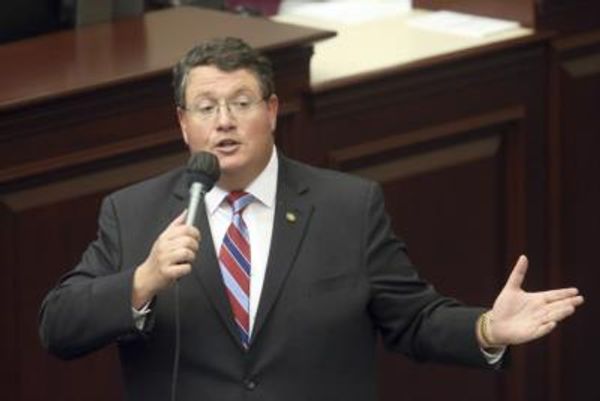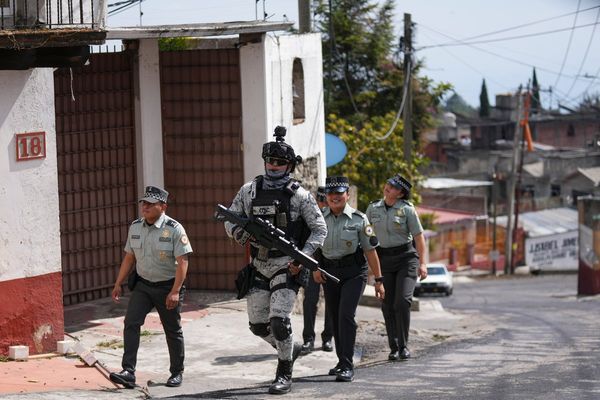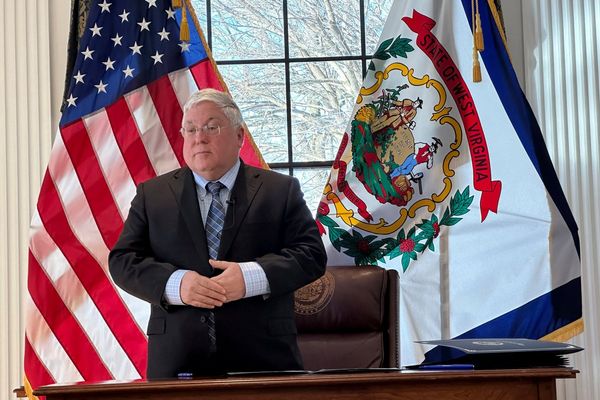
When Australia’s long-awaited free trade agreement with India finally passed the Indian Parliament last week, the Albanese government stayed silent on India’s increasingly problematic human rights abuses, including anti-Muslim hate crimes, the detention and harassment of activists, and a harsh security regime in Kashmir.
This silence again offers the Indian government a free pass as the “world’s largest democracy”. But beneath this fig leaf, the Bharatiya Janata Party (BJP) government led by Narendra Modi — in power since 2014 — has pursued a Hindu-centric policy of religious discrimination, involving a law that makes religion the basis for citizenship for the first time, suspending the autonomy of the Muslim-majority Jammu and Kashmir region in 2019, and passing laws prohibiting religious conversion in some states.
These forms of discrimination run rampant in a nation with one of the world’s largest Muslim populations. Modi has also refused to condemn Islamophobic hate crimes and lynchings, which have become common.
Christians are also suffering. On November 26 the United Christian Forum (UCF) based in Delhi said growth in recorded incidents was increasing “not just year-on-year, but even month-on-month”. These include a mob attacking a prayer meeting in Indore last year, jumping onstage, shouting Hindu supremacist slogans, punching pastors in the head and throwing women to the ground.
Last month the US Commission for International Religious Freedom noted India as a “country of particular concern”. It said various policies adopted and implemented by the Indian government had cultivated an environment “increasingly hostile toward religious minority communities. This trajectory, alongside an escalating government crackdown on civil society and dissent, is deeply alarming in a diverse, secular and democratic country whose constitution is intended to protect religious freedom.”
The Jammu and Kashmir region remains under strict security control under India’s draconian Public Safety Act, which permits detention without trial for up to two years. It also regularly has its internet shut down to stop people from communicating to disrupt public order.
Dozens of human rights defenders, journalists and students — as well as members of religious minorities — have been arrested in politically motivated cases. For example, Siddique Kappan, a Delhi-based Muslim journalist, was detained for two years for trying to contact the family of a young woman allegedly gang-raped. She later died of her wounds.
Independent investigations such as The Guardian’s Pegasus Project have revealed the Indian government’s use of unlawful surveillance apparatuses against human rights defenders that violates their rights to privacy, non-discrimination and data protection. Police and security forces also regularly use excessive force on protesters or detained people. Tellingly, last week India abstained from voting on a United Nations Human Rights Council (UNHRC) resolution to set up a fact-finding mission to investigate human rights violations on protesters in Iran.
Economically, however, there is plenty to be excited about. India’s economy is on the rise and is now the world’s seventh-largest. It will reportedly become the third largest globally — albeit still significantly trailing the US and China significantly — by 2040.
Australia, naturally, is seeking to take advantage of this. “The Australia-India Economic Cooperation and Trade Agreement (ECTA) is a great opportunity for Australian businesses as it will open up new markets to reach around 1.4 billion consumers in the world’s fastest-growing major economy,” Trade Minister Don Farrell and Prime Minister Anthony Albanese said recently.
There is, of course, more to this kumbaya with India, with Australia also pursuing strategic opportunities. Together with US and Japan, the two nations form the Quadrilateral Security Dialogue, an alliance designed to contain China. India has long been the most reluctant member. Its traditional strategic position is to be non-aligned with the US, Russia and China, but in the past two years it has become more enthusiastic as China has once again pressed on its long-disputed borders.
India continues to spread its allegiances, however. It remains close to Russia, which supplies at least 50% of its arms, and has thus remained largely quiet during Russia’s invasion of Ukraine. India is also a member of the Shanghai Cooperation Group, a China-centric grouping of Central and South Asian nations now expanding its ambitions.
Australia and its allies are willing to ignore this and the nation’s rights violations as it tries to wrangle India into its column. A clear illustration of this came from Defence Minister and Deputy Prime Minister Richard Marles’ visit to India in June, where he met with Modi in the first high-level meeting between the two countries since the May election.
When asked about India’s human rights record, Marles fudged: “I’m not going to pass judgment on India … India is the world’s largest democracy. It does value the rule of law and we are countries that have a shared set of values.”
Such a statement raises doubts, the most obvious being that Australia surely does not share the values of Modi’s concerted anti-Muslim policies or human rights violations.
Still, there’s some form in this glossing over of Modi’s appalling human rights record. There is a pretty loud echo of the Australia-China free-trade agreement in 2014 for those with even midterm memories. Back then it was the Abbott government and its gung-ho trade minister Andrew Robb who went into a frenzy of FTA signing with Japan, South Korea and — at the time at least — China.
In recent years, Australia has moved to redress the imbalance it had with Beijing, lurching from its previously friendly trade position to attacking China’s human rights record — including accusations about the origins of COVID. This helped poison the relationship so much that high-level government contacts were frozen for half a decade until Albanese’s recent meeting with China’s President Xi Jinping.
For all former foreign affairs minister Marise Payne’s faults, she was far better than her predecessor Julie Bishop in prosecuting China for its human rights abuses, especially in the province of Xinjiang.
For now, Australia appears willing to continue to studiously ignore the mounting evidence that Modi is a demagogic theocrat who presides over a government with an increasingly shocking human rights record, particularly as India assumes the G20 presidency for the coming year.
Should Australia knock back the free trade agreement with India? Let us know by writing to letters@crikey.com.au. Please include your full name to be considered for publication. We reserve the right to edit for length and clarity.







